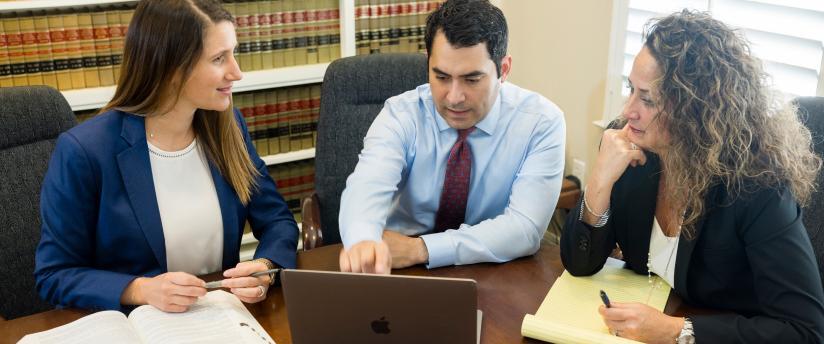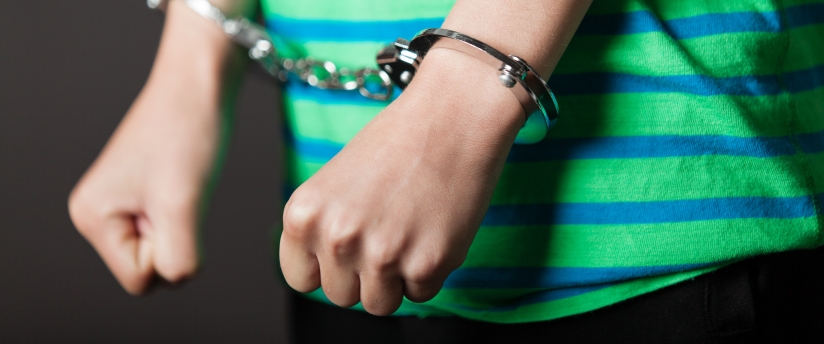How Are Juvenile Criminal Cases Different?

Texas Family Code § 51.02(2)(A) defines a child as an individual between 10 and 17 years old. A minor arrested and charged with a criminal offense must go through the Texas Juvenile Justice Department. The court oversees cases involving minor offenders.
Unlike the criminal process for an adult, juveniles have more options regarding alternative sentencing. Judges may exercise discretion when considering Texas juvenile sentencing guidelines. For example, many judges impose community-based programs, such as juvenile probation, to rehabilitate the offender.
Common Criminal Charges for Juveniles in Austin, TX
Minton, Bassett, Flores & Carsey, P.C., has 60 years of experience defending juvenile clients in cases such as:
Underage Drinking
State law prohibits minors from consuming alcohol. A minor is a person under 21 years old, according to Texas Alcoholic Beverage Code Chapter 106. However, if alcohol consumption occurs in the visible presence of the minor’s parent, guardian, or spouse, it is an affirmative defense to prosecution for this offense.
DWI
Texas is a zero-tolerance state. That means a minor under 21 years old with any amount of alcohol in their system while operating a motor vehicle is considered driving while intoxicated.
An offender between 17 and 20 years old can face a class B misdemeanor, punishable by:
- License suspension up to one year
- Between 72 hours and 180 days in jail
- Up to a $2,000 fine
A minor under 17 faces a class C misdemeanor for DWI, punishable by:
- 20 to 40 hours of community service
- License suspension between 60 and 180 days
- Maximum of a $500 fine
Drug Charges
Drug offenses commonly involve possessing an illegal substance, such as marijuana, cocaine, or ecstasy. Even possessing a legal prescription, such as Valium or Xanax, could be a crime if the minor doesn’t have a prescription for it or obtained the drug illegally.
Other types of drug charges juveniles can face include:
- Possession with the intent to deliver
- Prescription drug fraud
Theft
Texas Penal Code § 31.03 defines theft as the unlawful appropriation of property from the property owner. Unlawful appropriation includes:
- Taking property without the owner’s effective consent
- Taking property knowing someone else stole it
- Taking property in the custody of law enforcement despite the agent stating it is stolen property and the perpetrator believing someone stole it
Vandalism
Vandalism is the deliberate destruction or damage to someone’s private or public property. Vandalism can occur at school, a friend’s house, a mall, or a restaurant. It can happen on the interior or exterior of the property.
Vandalism often includes actions such as:
- Smashing mailboxes
- Breaking windows
- Spraying graffiti on walls
- Arson
- Trespassing
- Throwing eggs at a home
Improper Use of a Motor Vehicle
Juveniles might think it is a good idea to take a parent, guardian, or another person’s car out for a “joyride.” However, using someone’s motor vehicle without their consent is a felony. It is a type of theft that can result in up to two years in state jail.
Larceny
In Texas, a juvenile commits larceny if they take something from the owner with the intention of keeping it. It falls under the category of theft. Criminal charges range depending on the value of the stolen property.
However, if this is the child’s first offense, they could avoid jail time and serve their sentence under the first offender program. Every program differs but includes elements such as community service, rehabilitation, and education.
Assault
Assault is a serious violent crime in Texas. Texas Penal Code § 22.01 defines assault as:
- Knowingly or intentionally threatening someone with bodily injury, including a spouse.
- Knowingly, intentionally, or recklessly causing bodily harm to another person, including a spouse.
- Intentionally or knowingly engaging in physical contact with someone else despite knowing or should have known that the victim would consider the contact provocative or offensive.
A minor could face charges as an adult and serve their sentence in jail. However, sentencing through the Texas juvenile justice system might be possible to rehabilitate the offender.
Underage Purchase of Cigarettes or Alcohol
Anyone under 21 years of age cannot purchase or possess tobacco products according to Texas Health and Safety Code § 161.252. This statute is called Possession, Purchase, Consumption, or Receipt of Cigarettes, E-cigarettes, or Tobacco Products by Minors Prohibited.
Purchasing alcohol as a minor is also against the law in Texas.
Violent Crimes
Violent offenses committed by juveniles can include:
- Forcible rape
- Aggravated assault
- Manslaughter
- Robbery
- Murder
- Reckless endangerment involving a motor vehicle
Certain offenses involving violence that result in serious bodily injury or death could require prosecution as an adult instead of a juvenile.
Sexual Offenses
Sex crimes committed by juveniles can include:
- Indecency with a child
- Sexual assault
- Possession of child pornography
- Sexting
- Public lewdness
- Indecent exposure
- Prohibited sexual conduct
State law considers sex with a minor statutory rape if the victim is younger than the age of legal consent. That means despite the victim being close in age to the defendant and consenting to the act, the older person could get arrested for statutory rape.
The Romeo and Juliet clause could provide a solid defense to the charges. This law states that a minor between 14 and 17 can legally consent to sex with another person within three years of age.
Status Offenses Such as Truancy or Disorderly Conduct
A status offense is conduct that would not be a crime if an adult committed it. Common types of status offenses include:
- Truancy (skipping school)
- Disorderly conduct
- Violating curfew
- Running away from home
Texas Juvenile Sentencing Guidelines
The Texas juvenile justice system has a primary goal of rehabilitating juvenile offenders. Instead of imprisonment, the courts focus on alternative sentences such as:
- Restitution to the victim – The defendant must pay the victim for injury or damage they caused.
- Community service – Community service could be a punishment on its own or combined with probation.
- Deferred prosecution – A juvenile can avoid prosecution by successfully meeting various conditions.
- Counseling – In some cases, counseling is necessary for minor defendants, especially when there is drug or alcohol dependency.
- Probation – Probation is when the offender must meet various conditions imposed by the court during a specified period. Probation could involve community service, drug counseling, and other requirements.
Texas Juvenile Probation
Juvenile probation is a Texas court order for minors charged with certain criminal offenses. The offender can return to their normal routine and serve their sentence outside the juvenile justice system.
However, they must meet all conditions the judge sets for their probation. Additionally, a probation officer will supervise the child during the sentence to ensure compliance and determine whether violations occurred.
Common conditions include:
- Follow predetermined curfews
- Submit to periodic drug and alcohol testing
- Meet regularly with a probation officer
- Maintain attendance at school or work
- Undergo counseling for alcohol or drug abuse
- Avoid committing another crime
The duration of probation depends on the type and severity of the crime committed. Your child must follow all requirements throughout the entire period of probation for the court to dismiss their case.
If a child violates any conditions of their probation, they must sit before a judge to learn about their punishment. Probation violations can lead to penalties, such as:
- Harsher probation conditions
- A longer period of probation
- Transfer to a juvenile detention facility to serve out the remaining sentence
Talk to Us Today to Discuss Your Juvenile Crime Charges
At Minton, Bassett, Flores & Carsey, P.C., we understand that the juvenile justice system can be scary and overwhelming for children and the parents who support them. Fortunately, our Austin juvenile defense attorneys are here to help.
We will be ready to mount an aggressive defense against the charges your child faces and will do everything in our power to secure the best possible result. Call us or reach out to us online for a confidential consultation.
{
“@context”: “https://schema.org/”,
“@type”: “Product”,
“name”: “Juvenile Crimes Lawyers”,
“image”: “https://www.mbfc.com/wp-content/uploads/2022/09/juvenile-crimes.jpeg”,
“description”: “If your child is facing criminal charges, contact Minton, Bassett, Flores & Carsey, P.C., to discuss how we could help defend them.”,
“brand”: {
“@type”: “Brand”,
“name”: “Minton, Bassett, Flores & Carsey, P.C.”
},
“aggregateRating”: {
“@type”: “AggregateRating”,
“ratingValue”: “4.4”,
“bestRating”: “5”,
“worstRating”: “1”,
“ratingCount”: “22”
}
}







